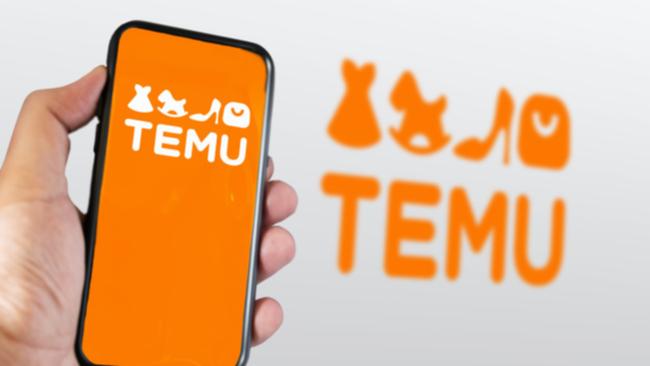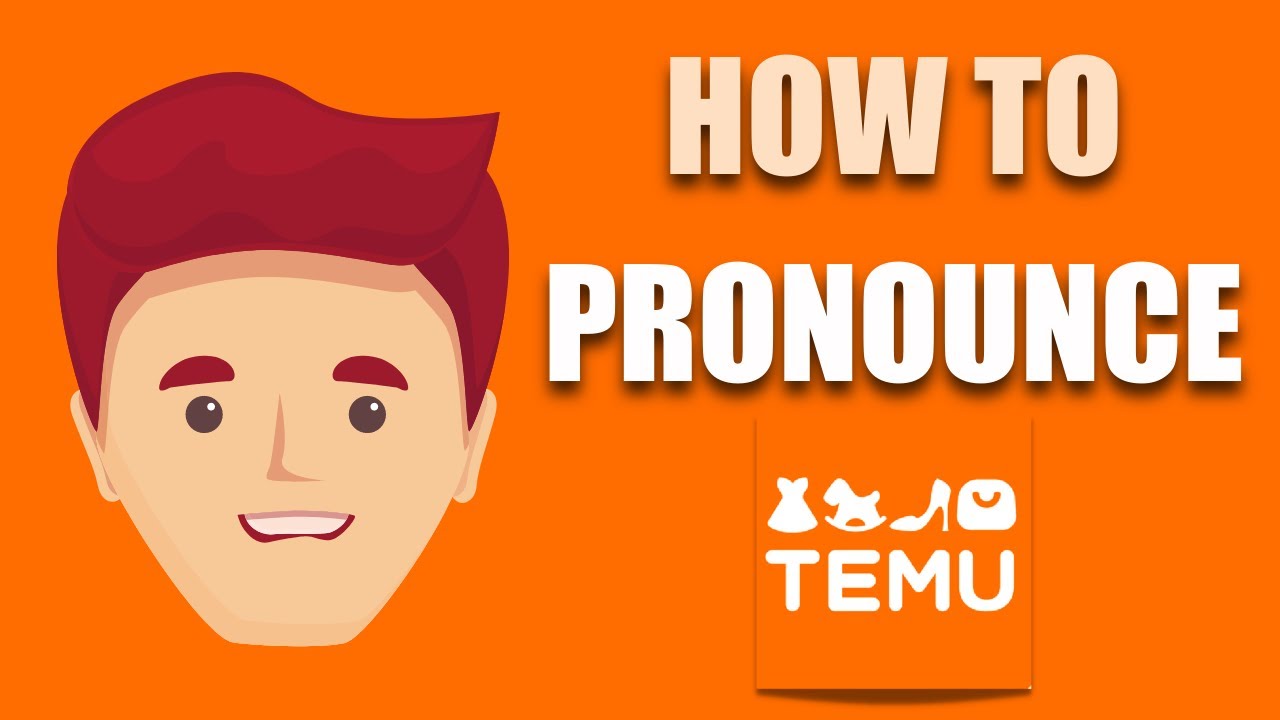Temu’s $21 million Super Bowl 2024 advertising campaign revealed its official pronunciation to nearly 124 million viewers. The commercial surprised many by pronouncing it as “teh-moo.” This sparked immediate discussions on social media. People rushed to search online to confirm the correct way to say the brand’s name.
Search interest in Temu surged right after the Super Bowl broadcast. Viewers wanted to learn about the platform’s products and its pronunciation. The company’s Super Bowl commercial on YouTube got 15 million views. This showed the public’s strong interest in the retail platform that launched in Boston in September 2022.
This piece looks at how Temu’s pronunciation has grown, how it shapes the brand’s identity, and what this change in brand communication means for their strategy.

Table of Contents
The origin of Temu and its intended pronunciation
The story behind Temu’s faster-growing e-commerce success starts with a name that carries deep business meaning. The platform launched in the United States in September 2022, and its name reveals a lot about its business philosophy and the confusion about how to say it.
The meaning behind the name Temu
The company picked this name with purpose—Temu stands for “Team Up, Price Down”. This clever acronym shows what helped the platform expand to 49 countries by January 2024.
Temu’s name matches its business model. The platform brings together many buyers and sellers to create group purchasing power. This approach helps customers save money through wholesale-level prices.
The platform works differently from regular stores. Customers can buy directly from suppliers and factory owners without going through middlemen. This direct connection lets people get wholesale prices without buying in bulk.
Temu’s parent company thought over this name to show its worldwide goals, even though “Temu” has no meaning in Chinese. PDD Holdings, a multinational commerce group, owns and runs Temu from its main office in Dublin while being registered in the Cayman Islands. The same company owns Pinduoduo, a Chinese online shopping platform that’s known for its group-buying success.
Why ‘tee-moo’ was the original pronunciation
The company first wanted everyone to say “tee-moo.” This lined up with how the name came from “Team Up.” PDD Holdings’ leaders used this pronunciation in their official talks. The head of Temu’s parent company said it this way during a financial meeting just months before the Super Bowl.
“Tee-moo” made sense because it matched the “Team” in “Team Up.” The “tee” sound at the start connected naturally to the company’s core idea.
Everyone said it this way at first. You could hear “tee-moo” clearly in Temu’s first Super Bowl ad in February 2023. The company gave a simple way to remember it: “Tea + Moo = TEE-moo”.
The pronunciation fits English language patterns. Words spelled with “te” usually make a long “e” sound, just like in “tepid” or “template”.
The company managed to keep this pronunciation as it grew worldwide. Temu opened in Australia and New Zealand in March 2023, then spread to European countries like France, Germany, Italy, the Netherlands, Spain, and the UK in April 2023. A single way of saying the name seemed key for building a global brand.
“Tee-moo” wasn’t just picked at random. The company thought over this pronunciation to match its name’s meaning and global brand—until everything changed with that famous Super Bowl pronunciation switch.
The Super Bowl moment that changed everything
Temu’s multi-million dollar Super Bowl advertising campaign left viewers stunned with an unexpected move in the brand name’s pronunciation. This surprising change became a defining moment that shaped the e-commerce platform’s brand identity and public perception.
How the 2024 Temu commercial said ‘teh-moo’
The company launched a massive advertising blitz by buying three Super Bowl ad spots at $7 million each, which added up to roughly $21 million. Some sources indicate the final costs might have reached $28 million. Their 30-second animated ads featured a catchy jingle about “shopping like a billionaire” and clearly pronounced the company name as “teh-moo”.
This pronunciation change stood out even more because it happened during the most-watched Super Bowl ever. Nielsen reported that nearly 124 million viewers tuned in. Such a massive audience gave Temu an exceptional platform to establish their preferred pronunciation.
The moment felt especially jarring because it completely contradicted Temu’s previous marketing approach. The company had clearly pronounced its name as “tee-moo” in their advertisements during the 2023 Super Bowl. Now they had completely changed course on America’s biggest advertising stage.
The company later gave an explanation through their spokesperson: “As Temu continues to expand into new markets globally, we want to ensure our brand name has a consistent and memorable presentation across different regions and languages”. The pronunciation change had actually started appearing in video advertisements weeks before the Super Bowl, but most consumers noticed it only during the big game.
The new pronunciation sparked immediate online discussions. A marketing expert pointed out: “Super Bowl is the one place where we can get everybody to see it, talk about it, maybe even look it up”. Their strategy worked perfectly as search interest in Temu exploded on Super Bowl Sunday.
Social media platforms became ground zero for the “teh-moo” versus “tee-moo” debate:
- A TikTok video titled “Temu said y’all gonna stop pronouncing it wrong” got over 18,000 views, 691,000 likes, and 1,500 comments
- Users expressed their confusion about the pronunciation change. One posted: “POV: Me 9 days later still trying to figure out how to say Temu”
- Another TikToker accused the company of “gaslighting” consumers by switching pronunciations, and their video reached over 271,000 views
The company’s official Super Bowl ad on YouTube reached 15 million views, showing intense public interest in Temu’s pronunciation change. Many viewers went back to older commercials to check if they remembered the original pronunciation correctly.
Shoppers reacted with a mix of confusion and defiance. One commented: “I KNEW the pronunciation of tee-moo was changed!!! Now it’s teh-moo, and it doesn’t sound so fun anymore”. Another stated firmly: “No matter what I’ll always pronounce Temu like tee-moo”.
Marketing experts saw through the change. One stated directly: “Mispronunciation is just a stunt”. Whatever the reason, the pronunciation controversy achieved something valuable for Temu—people talked about, searched for, and remembered the brand.
Was it a marketing stunt or a rebrand?
The sudden change in Temu pronunciation started a debate among marketing professionals. They wondered if this was a planned marketing move or a real rebranding effort. The timing and big investment suggest it’s a mix of smart marketing and growing global plans.
Expert opinions on brand strategy
Marketing experts see the pronunciation change as a thought-out way to grab attention. Marketing specialist Azzaro made it clear: “Mispronunciation is just a stunt”. This shows how smart it was to introduce “teh-moo” during America’s biggest advertising event.
The pronunciation change created buzz beyond just the products. Branding experts say Super Bowl advertising works because “it’s the only event where practically the entire country talks about the same thing simultaneously”. The confusion about pronunciation became valuable as it got people talking.
The business sense becomes clear when you look at the platform’s aggressive marketing approach. Temu spends about $1 billion each month on marketing. This shows how the company puts brand awareness ahead of making money right away. JPMorgan analysts say PDD will spend about $3 billion to market the Temu brand in 2024.
Sales data before and after the ad
Temu’s sales showed worrying signs before the 2024 Super Bowl pronunciation change:
- December 2023 sales dropped more than 12%
- January 2024 looked better but still fell about 5%
- Previous Super Bowl ads had boosted sales by a lot
These numbers show the company needed fresh attention after holiday shopping ended. Still, overall growth stays strong, with Temu reaching about $15.1 billion in gross merchandise volume for 2023.
Australian shoppers spend big on Temu. About 1.26 million people shop there monthly and might spend $1.3 billion together in 2024. The platform ranks as Australia’s fifth most popular online store, even though it started just last year.
Temu’s global reach keeps growing:
- More than 70 million people used the app in the US by May 2023
- US active users grew to 80 million by September 2023
- People downloaded the app more than 250 million times worldwide in 2023
Temu’s official statement on the change
Temu gave a clear answer about its correct pronunciation. Their spokesperson explained: “As Temu continues to expand into new markets globally, we want to ensure our brand name has a consistent and memorable presentation across different regions and languages. After careful consideration, we determined that the new pronunciation achieves this goal better”.
They focused on global consistency instead of talking about marketing plans. Company materials state: “Temu is pronounced as Teh-moo, as opposed to Tee-moo, as many Australians would say”.
This matches Temu’s push to grow worldwide. The Chinese-owned company runs from Boston and must direct its way through different languages across markets. This might explain why they wanted everyone to say Temu the same way as they moved beyond English-speaking countries.

How pronunciation affects brand identity
Brand pronunciation does more than just market products – it shapes identity and recognition. Temu’s pronunciation change shows how brand management works when companies expand beyond their cultural and linguistic comfort zones.
Why consistency matters in global branding
Brand consistency affects financial results directly. Research shows brands have seen up to 33% more revenue after they made their external communications more consistent. A consistent brand image can quadruple visibility and boost revenue by up to 23%. When pronunciation varies, it creates market confusion that hurts both revenue and reputation.
Temu faces a unique challenge to keep pronunciation uniform across 49 countries. The company explained their move to “teh-moo”: “As Temu continues to expand into new markets globally, we want to ensure our brand name has a consistent and memorable presentation across different regions and languages”. They know standardizing pronunciation becomes vital as they expand beyond English-speaking markets.
The switch to a new pronunciation shows a calculated choice about what works better worldwide. Companies in international business often adapt how their names sound in different regions. Wrigley changed “Spearmint” to “Speermint” for German speakers, while Maxwell House used different names in various markets.
The role of pronunciation in consumer trust
Trust is the foundation of buying decisions – 81% of consumers say they need to trust a brand before making a purchase. Brand names, especially how they sound, help build this trust.
Research shows consumers naturally find meaning in brand name sounds (phonemes). These sound patterns help people judge products and brands through sound symbolism. This happens automatically, without conscious thought.
“Teh-moo” and “tee-moo” create different subconscious connections. High-front vowels like “ee” make people think of small, light, and fast things, while other vowel sounds create their own impressions. Small pronunciation differences can change how people see a brand.
Marketing experts know pronunciation matters: “The holy grail in advertising is to find something that’s ownable, and there’s nothing more ownable than your brand name”. When people keep saying a name wrong, it can hurt the brand – “if they’re not just saying the name wrong, what else could they be getting wrong about the brand?”.
Temu’s pronunciation change shows how global brands must balance staying consistent while adapting to different markets. Whether it’s “teh-moo” or “tee-moo,” they know that making pronunciation standard helps build global recognition and consumer trust.
Regional and linguistic variations of ‘Temu’
The way people pronounce Temu varies across the globe, and these differences tell us something interesting about how brands adapt to local languages. The e-commerce giant’s name shows subtle but meaningful changes based on where you are in the world.
Temu pronunciation in American vs British English
British English speakers say “TEH-moo” with a short “e” sound in the first syllable. The International Phonetic Alphabet (IPA) shows this as /tɛmʊ/.
American English takes a different path. They say “TEH-moo” but stretch out the “e” sound in the first syllable, which appears as /tiːmuː/ in IPA notation. This small difference in vowel sound creates a distinct variation between these two major English dialects.
The company’s global marketing materials show this pronunciation split. Some regions use “tee-moo” while others stick to “teh-moo” as the brand expanded worldwide.
How to pronounce Temu in Chinese and Indonesian
Temu’s Chinese parent company, PDD Holdings, likely thought about Chinese pronunciation when standardizing the name globally. Japanese speakers write it as “テム” (romanized as “temu”).
Indonesian speakers break down Temu into two clear parts: TEH-moo. The first syllable gets a bit more emphasis from native speakers. Language guides suggest practicing each syllable on its own before putting them together smoothly.
Phonetic breakdowns and IPA examples
The linguistic analysis of Temu’s pronunciation shows several IPA variations:
- /təmu/ – with a neutral first vowel sound
- /təˈmu/ – with emphasis on the second syllable
- [teˈmu] – with a clear “e” sound and second-syllable emphasis
- /ˈtɛ.mu/ – with emphasis on the first syllable and short “e” sound
English speakers might find it helpful to think of “TEH” (like in “ten”) plus “moo” (like a cow’s sound). Notwithstanding that, the official guidance now states that “teh-moo” serves as the global pronunciation, replacing the earlier “tee-moo” version.
Temu’s pronunciation experience shows a strategic decision rather than a simple marketing stunt. The company first used “tee-moo” but moved to “teh-moo” during Super Bowl 2024. This change shows their steadfast dedication to building consistent global brand recognition.
Brand pronunciation matters greatly when companies expand into international markets. Research indicates that consistent brand presentation can boost revenue by up to 23%. Temu’s standardization effort makes sense as a step toward future growth. Their marketing investment proves this commitment, with plans to spend $3 billion throughout 2024 to build lasting brand awareness.
Temu’s strategy seems to work well, regardless of whether customers say “teh-moo” or “tee-moo.” The e-commerce platform has quickly expanded to 49 countries and gained 80 million active U.S. customers. This pronunciation standardization could become crucial as they maintain their brand identity in markets of all types.
Here are some FAQs about Temu pronunciation:
How do you pronounce Temu?
The correct Temu pronunciation is generally “TEE-moo” in American English. This is the most commonly used version according to the official Temu pronunciation in English. However, regional accents may lead to slight variations.
Is it Temu or teh mu?
The intended pronunciation is “TEE-moo,” though some people say “teh-moo” based on how it’s spelled. The Temu pronunciation change has led to some confusion, but the brand itself confirms the “TEE-moo” pronunciation.
How do you pronounce Temu Chinese name?
The Temu pronunciation when considering its Chinese roots may differ slightly, closer to “teh-moo” phonetically. However, the Temu pronunciation in English has been standardized to “TEE-moo,” especially in Western markets.
Is it pronounced Temu or tamu?
It is pronounced Temu, as in “TEE-moo.” The Temu pronunciation American standard favors this version. “Tamu” is a common mispronunciation, especially among first-time users unfamiliar with the brand.
Why is Temu pronounced differently now?
The Temu pronunciation change happened due to the brand’s expansion into new markets. As it grew globally, Temu updated pronunciation guidance to fit more with American phonetics and branding clarity.
What does Temu mean?
Temu is derived from the company’s mission “Team Up, Price Down,” reflecting its business model. While the Temu pronunciation in English is “TEE-moo,” the meaning is meant to communicate collaboration and affordability.
How is Temu so cheap?
Temu is so cheap because it connects consumers directly with manufacturers, cutting out middlemen. This business model allows for competitive pricing, and despite the Temu pronunciation confusion, the platform’s affordability remains a key draw.
Is Temu changing its name?
There is no official indication that Temu is changing its name. While the Temu pronunciation American usage may evolve, the brand remains consistent in its identity and continues to push global recognition under the same name.
How do you pronounce shein?
The correct pronunciation of Shein is “SHE-in.” Like the Temu pronunciation google results, there may be debate, but “SHE-in” is confirmed by the brand and widely accepted in both American and international markets.


